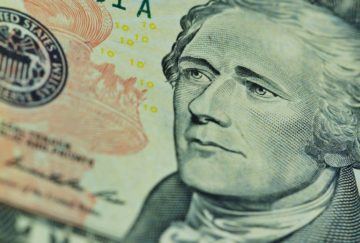Christian Parenti and Michael Busch in the Boston Review:
 The Founding Fathers are a perennial source of both wisdom and controversy. Alexander Hamilton, the first U.S. Secretary of the Treasury, has taken pride of place in these public debates in recent years, thanks in part to Lin-Manuel Miranda’s musical and Ron Chernow’s 2004 biography. In this interview, Michael Busch speaks with journalist and economist Christian Parenti about his new book Radical Hamilton: Economic Lessons from a Misunderstood Founder. They discuss how we still get Hamilton wrong and what we can learn from him about state building, economic planning, and the necessity of government action. —The Editors
The Founding Fathers are a perennial source of both wisdom and controversy. Alexander Hamilton, the first U.S. Secretary of the Treasury, has taken pride of place in these public debates in recent years, thanks in part to Lin-Manuel Miranda’s musical and Ron Chernow’s 2004 biography. In this interview, Michael Busch speaks with journalist and economist Christian Parenti about his new book Radical Hamilton: Economic Lessons from a Misunderstood Founder. They discuss how we still get Hamilton wrong and what we can learn from him about state building, economic planning, and the necessity of government action. —The Editors
Michael Busch: You published Radical Hamilton in August with Verso Books. Let’s start at the beginning: Who was Alexander Hamilton? Why did you write this book?
Christian Parenti: Hamilton was a Revolutionary War soldier, advisor to George Washington, and major Federalist politician who played an important role in framing the U.S. Constitution and became the country’s first Secretary of the Treasury. He created the country’s modern financial system and central bank. Less commonly known, he also laid out a plan for government-led industrialization—that is to say, a plan for wholesale economic transformation.
I wrote the book by mistake, because I stumbled upon Hamilton’s often name-checked but rarely discussed magnum opus, his 1791 Report on the Subject of Manufactures. At first the plan was to just republish the Report with an introduction. But that grew into this book.
More here.
